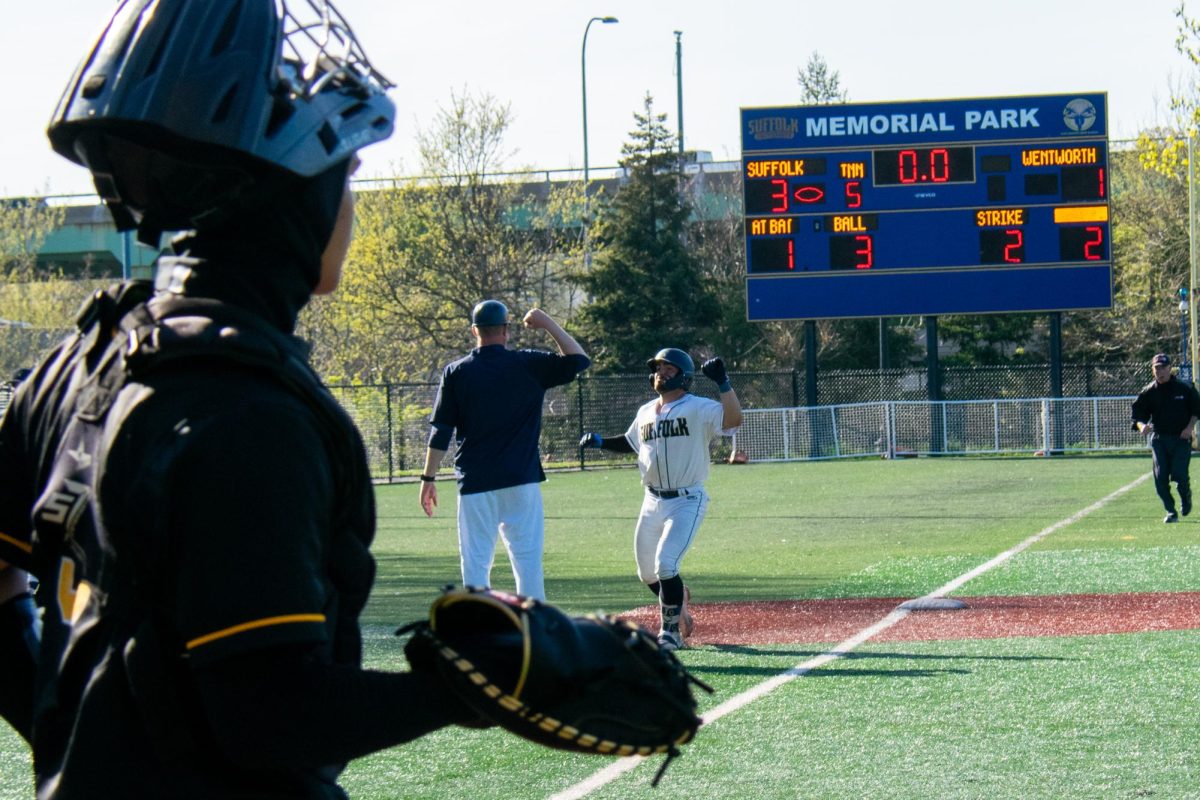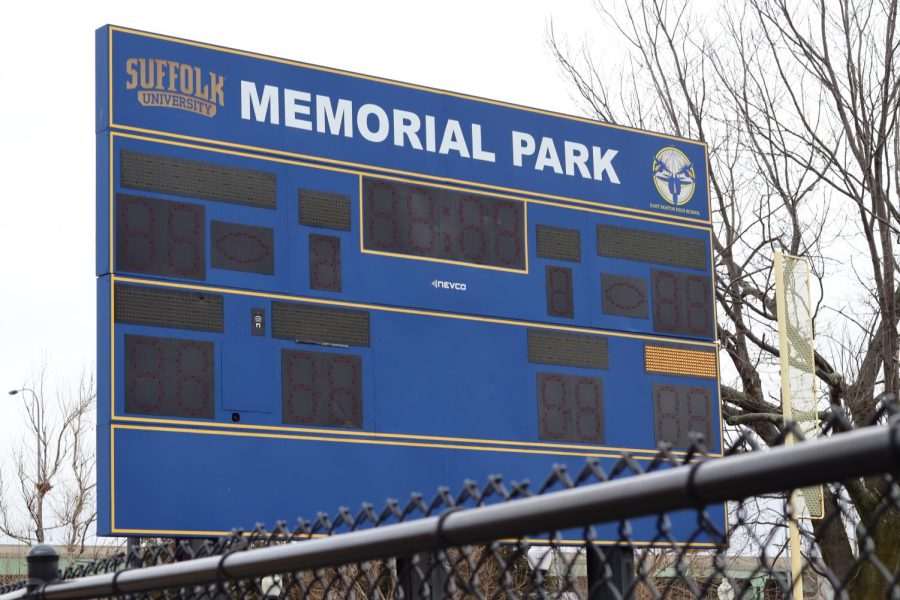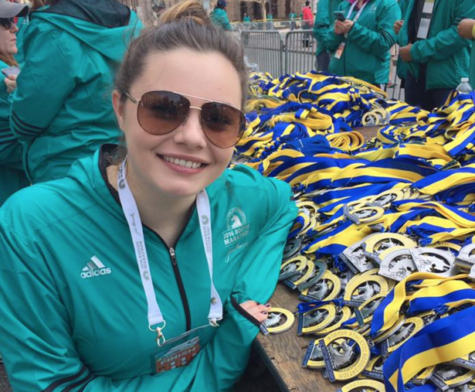“I remember when my parents dropped me off for college, I had this feeling like I was doomed.”
Tim Rosso, 34, of New Jersey has been sober for 17 months as he told the Journal in an interview with The Journal. Rosso’s childhood was just like any other. Growing up, he always had many friends, and he said his parents raised him with morals just like any other family would. But something was missing. He said he never felt as though he could fit in. The only thing that made Rosso feel at peace was America’s favorite pastime, baseball. He was a great athlete, he knew he was good, and being on the field was his sanctuary. Yet, baseball didn’t always complete him, he says.
Rosso picked up his first drink at age 18, surrounded by friends, finally feeling as though he belonged. However, he found himself looking forward to the next time he was able to pick up the bottle.
Entering his freshman year of college, Rosso had a lot to be excited about; he earned a scholarship to play baseball at a Division I school. But, the freedom of college turned out to be problematic for Rosso, as his drinking resulted in him being academically ineligible to play baseball his first semester of college.
“I felt like the more I was indulging in alcohol the more people wanted to be around me,” he said. “Drinking became the number one priority in my life at that time.”
After graduation, Rosso landed a job in business in New York City, but quickly realized that it wasn’t for him. He went back to school to get a teaching degree and started out as a substitute teacher, with a particular interest in special education.
At 24, he had become a teaching assistant in a school for autistic and behaviorally disturbed children and felt like he was truly making a difference in the lives of his students.
Although, during this time in his life, Rosso was smoking marijuana every single day, what he now calls a gateway drug. At 25, he tried cocaine and ecstasy for the first time and “fell in love with it.” He started out using it on weekends and special occasions, but consequently, it turned into an everyday thing.
But at 26, Rosso took a leap of faith and made an attempt to get back into what made him feel the most at peace with himself- baseball.
“I had a dream come into my heart and I wanted to pursue professional umpiring,” he said.
Rosso’s passion for the game motivated him to stay clean more than five weeks during Umpiring School. This rewarded him with an umpiring job in the lower level of the minor leagues and he says he “felt the best I’ve ever felt in a long time.” He did admit that while he would drink on occasion, he never lost sight of his goal and continued to move up through the leagues.
However, the problem came during the off-season when he didn’t have baseball to “help [him] get out of [himself],” and thus resorted back to abusing drugs. After being offered a painkiller by a coworker, Rosso found himself hooked on opiates and his addiction progressed to a point where he didn’t care about much else.
“I needed that next one,” he explained and by then, he considered himself to be a full-fledged drug addict. While he continued to be a skilled umpire, off the field the addiction was “calling the shots.”
After the 2012 season ended, Rosso was married to his fiancé that October. Until then, his fiancé and his family still didn’t know about his addiction and because he was traveling so much, they didn’t see his behavioral changes. About a month after his wedding, Rosso admitted that he stole money and after that “the cat was out of the bag.” His dark and painful secret had finally been exposed to his loved ones.
After this and a failed attempt at his first treatment, Rosso found his way to heroin. And after continuously failing drug tests in an outpatient program, it was suggested to him that he seek long-term treatment. In early 2013, he ended up at a halfway house in New Hampshire, where he maintained sobriety for almost six months. Sadly, all Rosso’s hard work was lost after he “got loaded” at his cousin’s wedding on July fourth weekend and was kicked out of the halfway house after he failed a drug test.
This was the point where Rosso believed his disease unquestionably progressed. He says he essentially “fell off the face of the earth.” He was divorced, his family wanted nothing to do with him and he told his supervisors that his addiction was going to prevent him from doing his job.
He had nowhere to go and for the first time in his life, he was homeless.
For a period of time, he stayed in a homeless shelter and bounced from couch to couch, while he continued to steal from the people who were taking him in. Eventually, he said he was living under a bridge in Lawrence, MA for nearly a year. During that time, he was day-laboring for a gentleman who gave him paving work. From there, Rosso had two spells in jail. The second time he was in jail, he was there for 60 days and remembers “swearing drugs and alcohol off, telling [himself he] was done.” However, when he was released on Dec. 10, 2014, a “switch” went off in his head that told him he wanted to get high again.
For several months, he said he was all alone, out of touch with his entire family, and everyone he knew. Even the man who had given Rosso the paving work was trying to track Rosso down but had no luck. Finally, on New Year’s Eve of 2014, the man found Rosso sleeping under a trailer behind a McDonald’s in Lawrence. He told Rosso he had work for him and drove him to a convenience store. As it turned out, there was no work at all. The man had called Rosso’s mother and told her that he found Rosso, and was going to try to convince him to go to treatment. He told Rosso that he had lost seven people to drug overdoses that year and didn’t want his story to end the same.
“I had no ideas and no plans. I didn’t want to continue living that way,” he said. “So I just said ‘okay.’” At that moment, Rosso said for the first time “the grace of God entered my life.”
Rosso began his third detox and says he “got real grateful, real quick.”
For the first time in a while, he had a roof over his head and was eating a solid three meals a day. He met with people from 12-step fellowships and said he “came to realize that these were people who were just like [him] and found a new way to live. It was very attractive, and I bought into it.”
He was sent to a holding and was determined to get well.
“I was paying attention and I was starting to get a little bit of hope back, and some confidence that I was able to do it,” he said.
He owes a great part in helping save his life to a halfway house he stayed at in Malden, Massachusetts. It provided him with right tools to get clean and stay clean with the 12-step fellowship. He said he “chased recovery” by keeping it the main priority in his life, and after 16 months of being clean, he said he will look forward to keep recovery “the number one slot.”
Today, feeling happy and healthy, Rosso believes that he has the most balance in his life that he has ever had before. Recently, he received an opportunity to get back on the baseball field, and now umpires for college baseball. He is not sure what the future holds for him, but believes that if he continues to stay on track, nothing but good can come out of it. If one thing is for sure, Rosso is exceptionally grateful to be alive and be able to say that his sobriety date is Jan. 6, 2015 and “there’s no reason that should be the anniversary of my death.”
He defined his sobriety as an “unmerited gift.”
“I’m not alone in this process,” he said confidently. “I have peace of mind.”
Rosso’s story is one similar to many others who share or have shared the same struggle. Rosso explained that drug addicts are “not bad people, they are just sick people trying to get help.” It clear to me now that the beginnings of a drug addiction start out as a way to cope with some form of pain. Addiction is not a black and white issue. If people opened their hearts and minds and listened to people like Rosso, they would find they’d be able to emphasize with the torment that drug addicts suffer, and hopefully get closer to ending the stigma of drug addiction.















Smithc739 • Oct 1, 2016 at 12:25 pm
Hey there! Do you know if they make any plugins to help with Search Engine Optimization? I’m trying to get my blog to rank for some targeted keywords but I’m not seeing very good results. If you know of any please share. Thank you! gcbekecfdgadkdfe
Smithd97 • Aug 29, 2016 at 3:50 am
Hi! This is my first visit to your blog! We are a ccdddabckdkdgaee